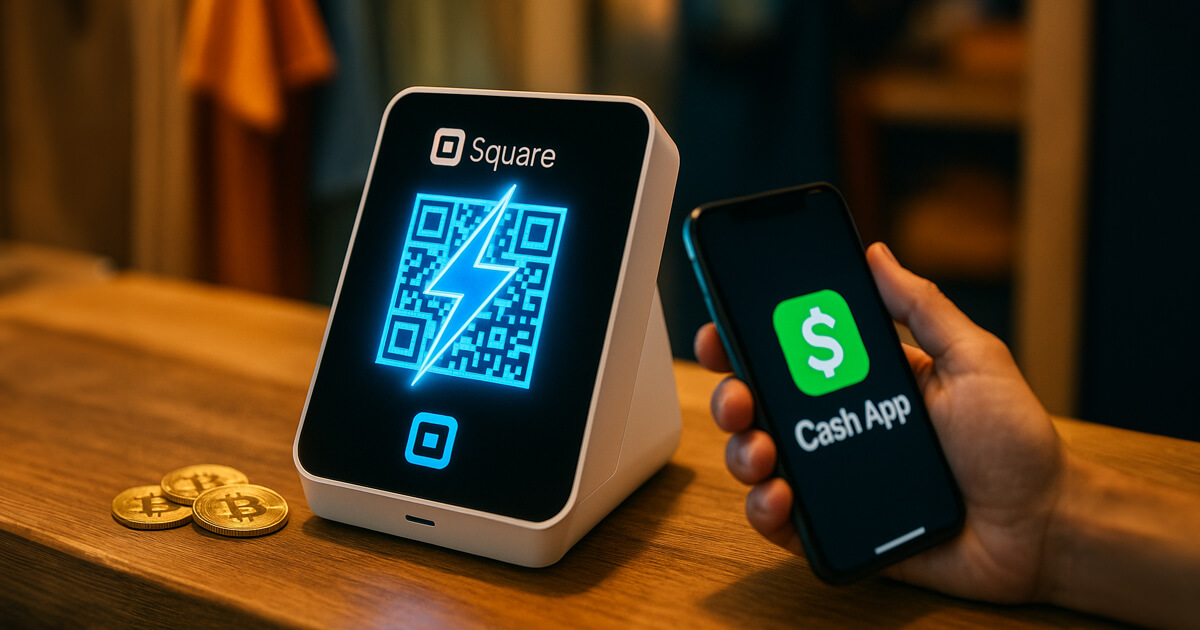Blockchain
Leapfrogging the ledger: Why developing countries may beat the West to blockchain ownership

Credit : cryptonews.net
Asset tokenization – the method of placing real-world belongings resembling firm inventory, actual property and authorized paperwork on the blockchain – is quietly however persistently gaining momentum. The promise is nice: sooner transfers, fewer intermediaries and broader world entry.
However as expertise races ahead, governments are nonetheless struggling to maintain tempo. In lots of growing nations, possession remains to be tied to paper, leaving directors with techniques which can be sluggish, fragile and ripe for disruption.
Corey Billington, CEO of asset tokenization firm Blubird, believes it’s these limitations that would see rising markets be the primary to leap right into a blockchain-based future. In an interview with crypto.informationhe explains why nations nonetheless tied to guide report maintaining could also be uniquely positioned to undertake a extra environment friendly, digital method – and what that shift may ship.
Abstract
- Creating nations are switching digitalization on to the blockchain
- These techniques require nationwide wallets, probably driving adoption
- Governments are way more open to tokenization than they reveal
Crypto.information: We have seen a giant push these days towards tokenization of belongings: IPOs, shares, actual belongings shifting on-chain. Out of your perspective, the place are we at with shares particularly proper now, and what’s driving this momentum?
Corey Billington: So, particularly in on-chain equities, we’re type of at a crossroads. You’ve got a handful of nations that at present have supporting infrastructure: authorized frameworks, classification techniques; issues like that. After which you could have the growing nations – and likewise a lot of first world nations – the place that basis remains to be missing.
Creating nations want this most, particularly in the event that they need to develop sooner and change into first world nations themselves. However what they typically miss is the authorized infrastructure: how one can deal with tokenized belongings, replace registries, and reconcile on-chain occasions with off-chain governance.
And that is the actual drawback. There’s a massive distinction between what the software program can do and what the authorized techniques really help. You’ve got tokenization engines like Blubird, and others too, and we’re all doing an amazing job on a technical degree. However the separation comes when the authorized frameworks that these tokens are presupposed to symbolize aren’t maintaining, resembling share registers that aren’t robotically up to date when one thing adjustments within the chain.
Crypto.Information: So the registries do not sync with the on-chain occasions?
Billington: Exactly. For instance, if we’re speaking particularly about fairness, that would imply that the share register isn’t up to date when on-chain transactions happen. On the state or nationwide degree, many nations don’t acknowledge in-chain transfers until their very own information displays the change. And this difficulty is not only restricted to fairness. The identical goes for actual property or sources, though sources are handled barely in another way in some locations.
To present you an actual instance, what we’re doing now with one authorities is addressing this by tokenizing the land title registry itself. We do not begin with homes or properties. We begin on the root: the registry layer. And this isn’t solely pushed by the federal government, but additionally by some massive corporations who see how a lot that is wanted.
You may also like: Land registries should swap to blockchain expertise | Opinion
Crypto.Information: Are you able to say which nation?
Billington: All I can say proper now could be that it’s within the Caribbean. It’s a growing nation. The issues they see are monumental: forgery of paperwork, squatter points, disputes over possession. Proving who owns what in courtroom is troublesome if the paperwork can’t be trusted.
So we clear up that by placing the registry on the chain. That turns into the supply of fact. Nevertheless it’s not simply in regards to the register itself. When you go down this path, you may want a full digital infrastructure to help it.
You want a nationwide pockets system for residents, as a result of if possession is within the chain, they want wallets. Rental agreements may also stay in these pockets. You are speaking about utilizing managed pockets options from gamers like Utillia or Fireblocks; options which have permissions and safety and are already utilized by banks.
So you are not simply tokenizing land. You might be laying the muse for a totally digital financial system. And as soon as that basis is in place, every part else turns into simpler: leases, contracts, warehouse billing. You now have a nationwide ecosystem that helps this.
This nation we work with remains to be very paper-based. Severely, they run many important techniques on bodily paperwork. However they’re getting richer and so they know they can not afford to remain on paper. So that they skip the outdated “digital” part and go straight to full digitalization on a DLT construction.
Crypto.Information: Like switching from landlines to cell?
Billington: Exactly. They skip steps. And curiously, first world nations may do that too, however they do not. Their techniques are damaged too, however they’re comfy. There isn’t a actual drive for reform. I feel they’re ready. They need smaller nations to try it out, work out the bugs and implement it later – as soon as it’s confirmed and replicable. One thing plug and play, like opening Microsoft Phrase, it seems to be and works the identical each time. That is what they’re ready for.
Crypto.Information: You talked about that some massive corporations are literally pushing for these reforms on the registry degree. What motivates them? What do they see because the benefit?
Billington: They face the identical issues: fraudulent paperwork, unreliable title techniques, authorized ambiguity. They usually understand there isn’t any profit in copying first world fashions which can be already outdated. Why rebuild the identical damaged system?
What we see is that these corporations look forward: ten, twenty, thirty years forward. They do not need to make investments cash in infrastructure that will likely be outdated in 5 or ten years. Once they make investments, they need to assist create one thing future-proof.
Many of those corporations have agreements with governments; a part of their ‘license to function’ consists of investing in native infrastructure that advantages residents. And on this case, which means serving to construct a contemporary digital basis. For instance, one in every of these corporations has already spent $3 billion and has put aside a good bigger quantity for related growth tasks in that area.
A nationwide on-chain possession registry requires digital wallets, a digital ID and infrastructure to handle all of it securely. And after getting that, you can begin layering leases, employment agreements, billing, and even credit score techniques.
You do not simply construct a registry. You might be constructing a DLT-native nationwide infrastructure. And from there every part comes collectively: sooner processes, decrease prices, extra transparency.
You may also like: Document-breaking crypto hacks push traders towards safe wallets: report
CN: Proper – and what are the concrete advantages for governments, industries and residents?
CB: Pace and value initially. Audits are carried out shortly as a result of information trails are clear and verifiable. You do not want guide authorized verification at each step: the info is there, cryptographically locked, and the contract logic has already been executed.
And in addition the prices: no intermediaries are wanted. You do not want as many intermediaries to validate, notarize, or course of transactions. That alone saves money and time.
CN: Are you able to give a real-life instance?
CB: Certain, suppose you need to purchase a home. You will usually want a notary to validate your ID, maybe a lawyer, and plenty of doc checks. However when you’ve got a government-issued pockets linked to your digital ID, you possibly can merely signal the transaction. That signature proves who you might be.
Your pockets turns into like a digital passport or social safety quantity. It can’t be counterfeited, it’s distinctive to you and it immediately proves your identification. You do not have to go to a notary or spend hours gathering paperwork. That total layer disappears.
And it isn’t simply notaries. For instance, accounting corporations will nonetheless exist, however their position will change. If the info is immutable, verifiable, and traceable alongside the chain, they do not need to manually search the data. Belief has been constructed.
So it isn’t simply that issues are shifting sooner; additionally it is the case that total classes of friction are starting to vanish.
CN: How do you method the problem of privateness and safety in these techniques? I assume not every part on the chain is publicly seen?
CB: Proper, so you must discover a stability. The essential chain is public, however you should utilize instruments like ZK Go or different privateness layers for delicate issues. The general public can see {that a} transaction has taken place, however they will not essentially see the small print; they’re within the metadata. And even then, some metadata could also be public, some personal, relying on who has entry to it.
For instance, for one thing like medical information, you want two keys to unlock it: one from the person, one from the healthcare supplier. The identical goes for monetary information. Entry is gated and entry requires permission or approval from each side.
CB: There’ll at all times be sensible contract danger. It is inevitable, whether or not it is bugs, exploits, and even the larger issues: quantum computing sooner or later. However in our use case it’s extra manageable. You do not need to cope with advanced monetary logic resembling strike or credit score protocols. These are easy, concluded contracts: registry updates, ID verifications, possession transfers.
The place the actual danger nonetheless lives is in social engineering. That has at all times been the mushy underbelly of technical techniques. However right here every part runs on multi-sig or multi-key techniques. Even when somebody compromises one key, that is not sufficient. You want a number of approvals to do something significant.
So I would not examine this to Web2, the place a single insider can simply stroll away with a database. It is way more troublesome. Not immune, however a lot safer.
CN: That is smart. One final query: what developments do you assume are necessary however not talked about sufficient?
CB: Governments are way more open to this type of factor than most individuals understand. Loads occurs behind closed doorways. They are not simply dipping their toes in, they’re critically exploring how one can clear up corruption, cut back fraud and enhance transparency. These are the drivers.
A few of these nations actively struggle corruption. They have been cracking down on gangs, they’re cleansing up politics, however they nonetheless face deep systemic issues like solid paperwork, under-the-table offers, hidden registries. DLT removes the hiding locations.
After which there are the prices. A blockchain-based registry isn’t solely higher, additionally it is cheaper. And that’s necessary for governments, particularly people who need to modernize shortly.
So transparency, anti-corruption and value financial savings. That is what actually strikes this ahead.
You may also like: There isn’t a foul play in Javier Milei’s Libra crypto promo, anti-corruption company says
-

 Meme Coin8 months ago
Meme Coin8 months agoDOGE Sees Massive User Growth: Active Addresses Up 400%
-

 Blockchain1 year ago
Blockchain1 year agoOrbler Partners with Meta Lion to Accelerate Web3 Growth
-

 Videos1 year ago
Videos1 year agoShocking Truth About TRON! TRX Crypto Review & Price Predictions!
-

 NFT11 months ago
NFT11 months agoSEND Arcade launches NFT entry pass for Squad Game Season 2, inspired by Squid Game
-

 Meme Coin1 year ago
Meme Coin1 year agoCrypto Whale Buys the Dip: Accumulates PEPE and ETH
-

 Solana5 months ago
Solana5 months agoSolana Price to Target $200 Amid Bullish Momentum and Staking ETF News?
-

 Videos4 months ago
Videos4 months agoStack Sats by Gaming: 7 Free Bitcoin Apps You Can Download Now
-

 Ethereum1 year ago
Ethereum1 year ago5 signs that the crypto bull run is coming this September
















